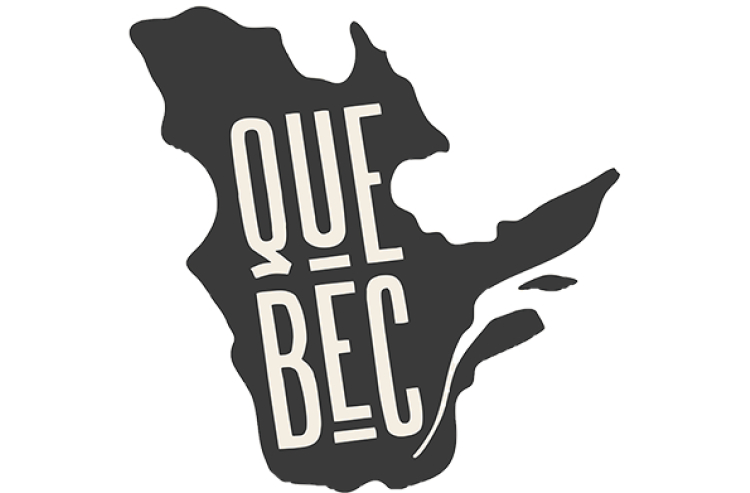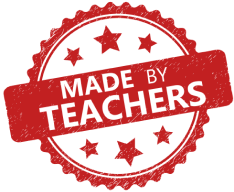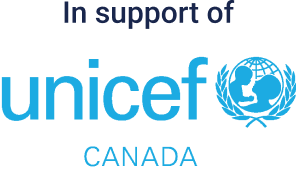Quebec Secondary II (Grade 8)

CLICK HERE FOR CURRICULUM CONNECTIONS, LESSONS AND SUPPORT RESOURCES.
Made by a Secondary II teacher in Quebec.
Kids Boost Immunity (KBI) provides educational content (lessons and support materials) developed by teachers and where needed, health experts, that is directly linked to curriculum and is available completely for free. Each lesson is paired with an online quiz that students can take on a laptop, tablet, or phone. Every time a student scores 80% or higher on a quiz, we donate life-saving vaccines to UNICEF Canada. To learn more about KBI, click here.
Click on the overarching curriculum themes below to see the curriculum outcomes that match KBI educational content. The full Secondary II Quebec Curriculum Connections document is here.
- Physical Education and Health
-
Curricular outcomes:
Physical Education and Health - Curriculum Competency
- Adopts a healthy, active lifestyle
- The process involves analyzing how personal lifestyle habits affect health and well-being. This includes keeping an open mind about health information, consulting reliable resources critically, gathering facts about one's lifestyle, and identifying habits that are beneficial or harmful to health.
Applicable KBI lessons:
1. Critical Thinking & Evaluating Information
- Literacy builder worksheet/answer guide
- Lesson worksheet/answers
- Video worksheet/answers
- Inquiry activities/answer guides
- Numeracy activity/answers
2. Navigating the World of Online (Mis)Information
- Inquiry activities/answer guides
- Adopts a healthy, active lifestyle
- Science and Technology
-
Curricular outcomes:
General Concept
The Living World
- Diversity of life forms
- The study of millions of living beings across diverse habitats reveals a variety of adaptive strategies, showcasing the wonders of evolution. Over time, evolution and natural selection have led to changes in species, with favorable traits being passed down through generations. These observations of species' differences and similarities have enabled the development of a classification system.
- Survival of Species
- Reproduction is a key adaptive strategy for species survival, with various species showcasing diverse and effective reproductive methods. For humans, sexuality extends beyond reproduction, and birth control is seen as essential for collective survival, with various methods available globally.
- Life-sustaining processes
- The cell is the fundamental unit of life, performing essential functions necessary for survival. Despite the diversity in cell forms, all cells carry out similar vital functions to sustain life.
Science - Big Ideas
- Life processes are performed at the cellular level.
Applicable KBI lessons:
1. Diversity of Living Things
- Literacy builder worksheet/answer guide
- Lesson worksheet/answers
2. The Spread of Infectious Diseases
3. The Immune System & How Vaccines Help Prevent Diseases
- Literacy builder worksheet/answer guide
- Lesson worksheet/answers
- Video worksheet/answers
- Numeracy activity/answers
4. Antibiotics
- Diversity of life forms
- English Language Arts (ELA)
-
Curriculum outcomes:
ELA - Curriculum Competency
- Uses language/talk to communicate and to learn
- Producing Spoken Texts: Create spoken content for familiar audiences by considering context, audience, purpose, and language conventions, while exploring the aesthetic aspects of language.
- Interacting in Learning Contexts: Collaborate with peers and teachers to develop communication and problem-solving strategies, using inquiry in activities like research and classroom drama.
- Exploring Social Practices: Engage with the classroom and community by organizing work, developing self-evaluation and reflection processes, participating in evaluation discussions, and exploring language's role in a democratic society.
- Represents her/his literacy in different media
- Media Production: Follow a production process to create media texts for specific purposes and audiences, engaging in preproduction, production, and postproduction phases, while reflecting on strategies and personal development as a media producer and reader.
- Media Deconstruction: Analyze media texts to understand their meanings by identifying codes and conventions, recognizing that media texts are created for specific audiences and purposes, and reflecting on personal strategies for interpreting these texts.
- Producer-Text-Audience Relationship: Explore how media texts are shaped by the producer's stance, production decisions, and the representation or exclusion of different groups, while considering the impact of media texts on oneself and others.
- Reads and listens to written, spoken and media texts
- Making Sense of a Text: Integrate personal reading profile, stance, and strategies to understand a text, reading for both pleasure and learning, using prior experience and text features, and organizing information on topics of interest.
- Discussing Texts: Share personal responses to texts within a reading community, making connections between the text and personal experiences, while considering and accommodating peers' viewpoints in shaping responses.
- Interpreting Reader-Text Relationships: Reflect on how texts are constructed and their impact as a reader, using reading strategies to find textual details that support personal interpretations, blending one's world with the world of the text.
Applicable KBI lessons:
1. Critical Thinking & Evaluating Information
- Literacy builder worksheet/answer guide
- Lesson worksheet/answers
- Video worksheet/answers
- Inquiry activities/answer guides
- Numeracy activity/answers
2. Navigating the World of Online (Mis)Information- Inquiry activities/answer guides
- Uses language/talk to communicate and to learn
Curriculum-Related Themes Throughout the Year
- Indigenous History in Canada - precontact, contact, treaties, colonialism, The Indian Act. (September and June)
-
Curricular outcomes:
Social Sciences – General Concepts
- Native Territory
- A Native territory is occupied by citizens descended from a First Nation who claim autonomy over this territory. As a result of agreements reached between the Canadian or Québec government and some Native peoples, these territories are now subject to Native jurisdiction in almost all domains.
- Culture and Citizenship in Quebec
- Students value diversity, defend human rights, advocate for issues, and interact ethically with others. They are inclusive in their language and behaviour and recognize that everyone has something to contribute. Their approach to inclusive relationships exemplifies commitment to developing positive communities.
Applicable KBI lessons:
1. Indigenous History on Turtle Island
- Native Territory
- Reflecting on hardships and courage during WWII (November)
-
Curricular outcomes:
English Language Arts- Curriculum Competency
- Reads and listens to written, spoken and media texts
- Making Sense of a Text: Integrate personal reading profile, stance, and strategies to understand a text, reading for both pleasure and learning, using prior experience and text features, and organizing information on topics of interest.
- Discussing Texts: Share personal responses to texts within a reading community, making connections between the text and personal experiences, while considering and accommodating peers' viewpoints in shaping responses.
- Interpreting Reader-Text Relationships: Reflect on how texts are constructed and their impact as a reader, using reading strategies to find textual details that support personal interpretations, blending one's world with the world of the text.
Culture and Citizenship in Quebec
- We experience many changes in our lives that influence how we see ourselves and others.
Applicable KBI lessons:
1. Remembrance Day / Veterans Day / Armistice Day
- Reads and listens to written, spoken and media texts
- Reflecting on leadership qualities that foster kindness (December)
-
Curricular outcomes:
Culture and Citizenship in Quebec
- People who are socially aware and responsible contribute to the well-being of their social and physical environments
Applicable KBI lessons:
1. Christmas in No Man’s Land - Reflecting on Kindness
- Inquiry/creative activities
- Highlighting some key inspirational leaders during Black History Month as well as some experiences of refugees from different parts of the world (February)
-
Curricular outcomes:
English Language Arts - Curriculum Competency
- Reads and listens to written, spoken and media texts
- Making Sense of a Text: Integrate personal reading profile, stance, and strategies to understand a text, reading for both pleasure and learning, using prior experience and text features, and organizing information on topics of interest.
- Discussing Texts: Share personal responses to texts within a reading community, making connections between the text and personal experiences, while considering and accommodating peers' viewpoints in shaping responses.
- Interpreting Reader-Text Relationships: Reflect on how texts are constructed and their impact as a reader, using reading strategies to find textual details that support personal interpretations, blending one's world with the world of the text.
Social Sciences – General Concepts
- European Expansion in the World
- In a context marked by trading needs and the renewal of science and philosophy, European kingdoms financed voyages of exploration. European expansion is presented as the establishment of an initial form of world economy. The explorations had effects on the peoples who occupied North America at the time.
Culture and Citizenship in Quebec
- Students value diversity, defend human rights, advocate for issues, and interact ethically with others. They are inclusive in their language and behaviour and recognize that everyone has something to contribute. Their approach to inclusive relationships exemplifies commitment to developing positive communities.
Applicable KBI lessons:
1. Black History Month
2. Refugee Experiences
- Lesson worksheet/answers
- Inquiry activities
- Reads and listens to written, spoken and media texts
- Celebrating Inspiring Women in STEM (March)
-
Curricular outcomes:
English Language Arts - Curriculum Competency
- Reads and listens to written, spoken and media texts
- Making Sense of a Text: Integrate personal reading profile, stance, and strategies to understand a text, reading for both pleasure and learning, using prior experience and text features, and organizing information on topics of interest.
- Discussing Texts: Share personal responses to texts within a reading community, making connections between the text and personal experiences, while considering and accommodating peers' viewpoints in shaping responses.
- Interpreting Reader-Text Relationships: Reflect on how texts are constructed and their impact as a reader, using reading strategies to find textual details that support personal interpretations, blending one's world with the world of the text.
Science and Technology – General Concept
The Living World
- Diversity of life forms
- The study of millions of living beings across diverse habitats reveals a variety of adaptive strategies, showcasing the wonders of evolution. Over time, evolution and natural selection have led to changes in species, with favorable traits being passed down through generations. These observations of species' differences and similarities have enabled the development of a classification system.
- Survival of Species
- Reproduction is a key adaptive strategy for species survival, with various species showcasing diverse and effective reproductive methods. For humans, sexuality extends beyond reproduction, and birth control is seen as essential for collective survival, with various methods available globally.
- Life-sustaining processes
- The cell is the fundamental unit of life, performing essential functions necessary for survival. Despite the diversity in cell forms, all cells carry out similar vital functions to sustain life.
Culture and Citizenship in Quebec
- Students value diversity, defend human rights, advocate for issues, and interact ethically with others. They are inclusive in their language and behaviour and recognize that everyone has something to contribute. Their approach to inclusive relationships exemplifies commitment to developing positive communities.
Applicable KBI lessons:
1. International Women's Day - Celebrating Inspiring Women in STEM
- Literacy builder worksheets/answer guides
- Numeracy activity
- Inquiry activities
- Reads and listens to written, spoken and media texts
- Caring for the environment (April)
-
Curriculum outcomes:
Science and Technology – General Concept
The Earth and Space
- General characteristics of the Earth
- Planet Earth is not a homogeneous and monolithic entity. In fact, its structure can be analyzed and studied. The composition and structure of the Earth vary considerably from its centre to the highest reaches of its atmosphere. The study of its surface also reveals significant differences. All these specific features inevitably affect the beings that live in the biosphere.
- By observing, analyzing and modelling our planet, we have been able to determine our responsibility with regard to some of the changes we have observed. The study of these changes should now convince us that we must work together to make sure we have a healthy plant.
Social Sciences – General Concepts
- Urban Territory
- A city subject to natural hazards should be organized in such a way as to ensure the population’s safety. Certain measures should be taken to limit damage resulting from natural disasters. This is not the case in some parts of the world.
- Regional Territory
- An energy-producing region, regardless of location, is organized around the exploitation and commercialization of a natural resource. It is important to promote the long-term development of the resource through responsible management that shows respect for the environment.
- Agricultural Territory
- The agricultural territory of a national space consists of all its farming regions. In all parts of the world, the development of farm production often exerts pressure on the environment. It also gives rise to conflict with other forms of national territorial organization over the use of land.
Culture and Citizenship in Quebec
- Students develop awareness of and take responsibility for their social, physical, and natural environments by working independently and collaboratively for the benefit of others, communities, and the environment. They are aware of the impact of their decisions, actions, and footprint. They advocate for and act to bring about positive change.
Applicable KBI lessons:
1. Environment & Climate Change
- Literacy builder worksheet/answer guide
- Lesson worksheet/answers
- Video worksheet/answers
- Inquiry activities/answer guides
- Numeracy activity/answers
- General characteristics of the Earth
- Understanding communicable diseases and how they are spread, and learning about immunization. Suggested during flu season, immunization awareness week, and school vaccinations (if applicable)
-
Curricular outcomes:
Science and Technology – The Living World (General Concept)
- Survival of Species
- Among other adaptive strategies, reproduction ensures the survival of species. The study of the reproductive function of different species reveals a wide range of original and effective solutions.
- For humanity as a whole, sexuality is not limited to reproduction, and birth control seems to be a matter of collective survival. Most everywhere on Earth, different birth control methods are available to those who wish to use them.
- Life-sustaining processes
- The cell is regarded as the basic structural and functional unit of life. Despite the astonishing variety of cellular forms, cells ensure similar vital functions. The vital functions are essential for sustaining life.
Applicable KBI lessons:
1. Immunization Awareness Week
2. Scientific Curiosity and Vaccine Discoveries
- Literacy builder worksheets/answer guides
- Inquiry activities
- Survival of Species




